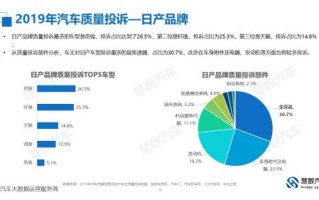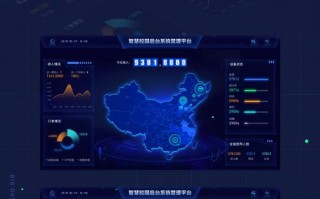Understanding EnterpriseLevel Big Data Solutions
In today's digital age, businesses are inundated with vast amounts of data from various sources such as customer interactions, social media, sensors, and more. Effectively harnessing and analyzing this data can provide valuable insights for decisionmaking, strategy formulation, and gaining a competitive edge. This is where enterpriselevel big data solutions come into play.
What is EnterpriseLevel Big Data?
Enterpriselevel big data refers to the management, processing, and analysis of large and complex data sets within an organization. These data sets typically exceed the capacity of traditional data processing applications and require specialized technologies and infrastructure to handle them effectively.
Key Components of EnterpriseLevel Big Data Solutions:
1.
Data Storage:
Enterprises require robust storage systems capable of handling petabytes or even exabytes of data. Technologies like Hadoop Distributed File System (HDFS), Apache HBase, and cloudbased storage solutions such as Amazon S3 or Google Cloud Storage are commonly used for storing big data.
2.
Data Processing:
Processing large volumes of data efficiently is crucial. Technologies like Apache Spark, Apache Flink, and Apache Storm enable distributed processing of big data across clusters of computers, ensuring scalability and speed.
3.
Data Analysis:
Analyzing big data to extract meaningful insights is the primary objective. Tools like Apache Hive, Apache Pig, and Apache Drill provide SQLlike interfaces for querying and analyzing large datasets stored in distributed environments.
4.
Machine Learning and AI:
Machine learning and artificial intelligence techniques play a vital role in extracting predictive insights and automating decisionmaking processes. Frameworks like TensorFlow, PyTorch, and scikitlearn enable the development and deployment of machine learning models at scale.
5.
Data Visualization:
Visualizing data helps stakeholders understand complex patterns and trends quickly. Tools like Tableau, Power BI, and Apache Superset allow for the creation of interactive and insightful visualizations from big data sets.
6.
Data Governance and Security:
Ensuring data integrity, privacy, and compliance with regulations is paramount. Enterprisegrade solutions implement robust data governance frameworks and security measures to protect sensitive information and mitigate risks.
Benefits of EnterpriseLevel Big Data Solutions:
1.
Improved Decision Making:
By analyzing large volumes of data in realtime, organizations can make datadriven decisions quickly, leading to better outcomes and competitive advantage.
2.
Enhanced Customer Insights:
Big data analytics enables businesses to gain deeper insights into customer behavior, preferences, and sentiment, facilitating personalized marketing strategies and improved customer experiences.
3.
Operational Efficiency:
Optimizing processes and workflows based on datadriven insights can enhance operational efficiency, reduce costs, and streamline business operations.

4.
Innovation and Product Development:
Big data analytics fosters innovation by uncovering market trends, identifying new opportunities, and guiding product development initiatives based on customer feedback and market demand.
5.
Risk Management:
Identifying and mitigating risks is critical for business success. Big data analytics helps organizations detect anomalies, anticipate market fluctuations, and proactively manage risks.
Challenges and Considerations:
1.
Data Quality:
Ensuring the accuracy, completeness, and reliability of data is a significant challenge in big data initiatives. Implementing data quality processes and establishing data governance frameworks are essential.
2.
Scalability and Performance:
As data volumes grow, scalability and performance become critical factors. Choosing scalable architectures and optimizing algorithms are essential for maintaining performance levels.
3.
Security and Privacy:
Protecting sensitive data from breaches and ensuring compliance with regulations such as GDPR and CCPA is a constant concern. Implementing robust security measures and encryption techniques is imperative.
4.
Skills Gap:
There is a shortage of skilled professionals with expertise in big data technologies and data science. Investing in training and talent development initiatives is essential for building competent teams.
Conclusion:
Enterpriselevel big data solutions offer unprecedented opportunities for organizations to unlock the value of their data and gain a competitive edge in today's datadriven economy. By leveraging advanced technologies, analytics capabilities, and best practices, businesses can harness the power of big data to drive innovation, improve decisionmaking, and achieve sustainable growth. However, addressing challenges such as data quality, scalability, security, and skills gap is crucial for successful implementation and adoption of big data initiatives.
Remember, the journey towards becoming a datadriven enterprise requires a strategic approach, continuous learning, and a commitment to innovation. Embrace the power of big data, and embark on a transformational journey to unlock new possibilities and drive business success.
标签: 企业级的英文 大数据推荐英文 大数据平台 建立企业级大数据平台





还木有评论哦,快来抢沙发吧~